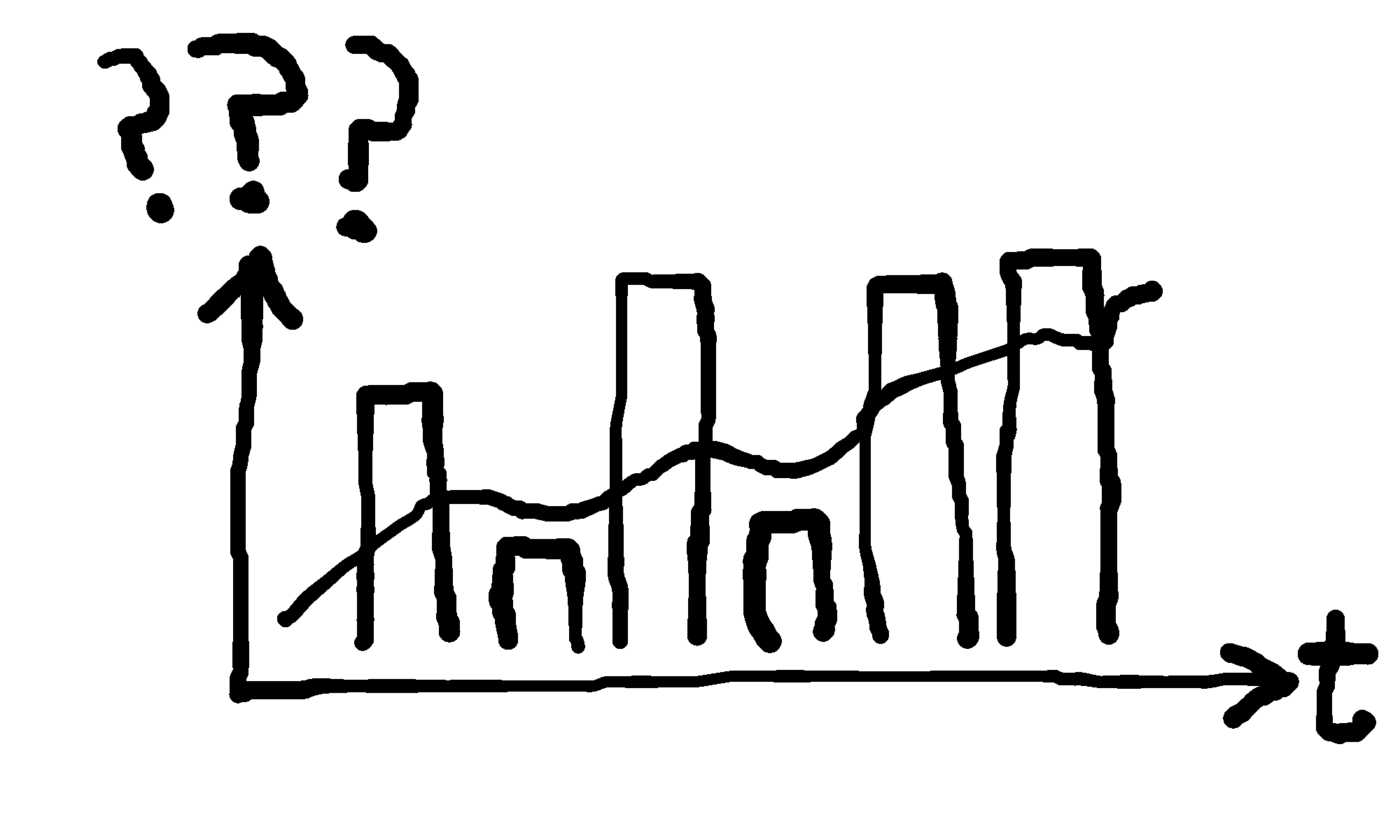How do you know if you are doing a good job? It probably depends on what your job is. If you run a work station on an assembly line, what can you measure? What should you measure?
- Throughput – number of items completed per day (more is better, probably)
- Quality – number of items rejected by downstream quality inspection (fewer is better, probably)
What else could you measure?
- Percentage of day dedicated to improving the factory line process (more is better? Maybe?)
- Your own happiness? If you are happy, you might be less inclined to quit, cause disruption/down time, be more productive, recommend your friends to work with you at the factory…
Can you run up your human capital credit line forever without paying it off?
Do those measurands really vary so much among different kinds of jobs? What about your job? Can you measure throughput, quality, percentage of your day spent on things that matter to the long-term success of the enterprise? What about your happiness?
The illusion of progress
We often change our behavior based on how our personal performance is measured. Shouldn’t this be the case?
Let’s say you are a project manager, and your project can be boiled down to this simple sequence of three serial tasks:
TASK A -> TASK B -> TASK C -> (done)
If you meet with your boss every day, and your boss asks you one question, what should that question be? Let’s try this one: “Has TASK C started yet?” Imagine hearing that every day from your boss… wouldn’t you want to start TASK C as soon as possible? Does that make sense? What if TASK A isn’t even done?
One way to respond to this is to start TASK C prematurely so you can confidently say “Yes!” one day. What could possibly go wrong? The team that performs TASK C will start doing something, but will be at risk of starting over once TASK B is finally complete. Won’t that drive up the overall cost of the project? What if you are faced with the projected cost overrun, and decide to spend money slower? Now you’re faced with increased cost and schedule delays.
How about this daily question: “Do you need help to deliver ahead of schedule?”
All you need is love
So what about measuring happiness? Does that matter? If all the project management fundamentals are in place, then yes. Getting your project in good shape requires a solid grasp of how to manage projects, but keeping it in good shape requires you to keep your team in good shape. Happiness, satisfaction, work/life balance, whatever you want to call it, it matters.
Coming in ahead of schedule and under budget is great, but what if low cost in dollars is masking a high cost in human capital? Can you run up your human capital credit line forever without paying it off?
